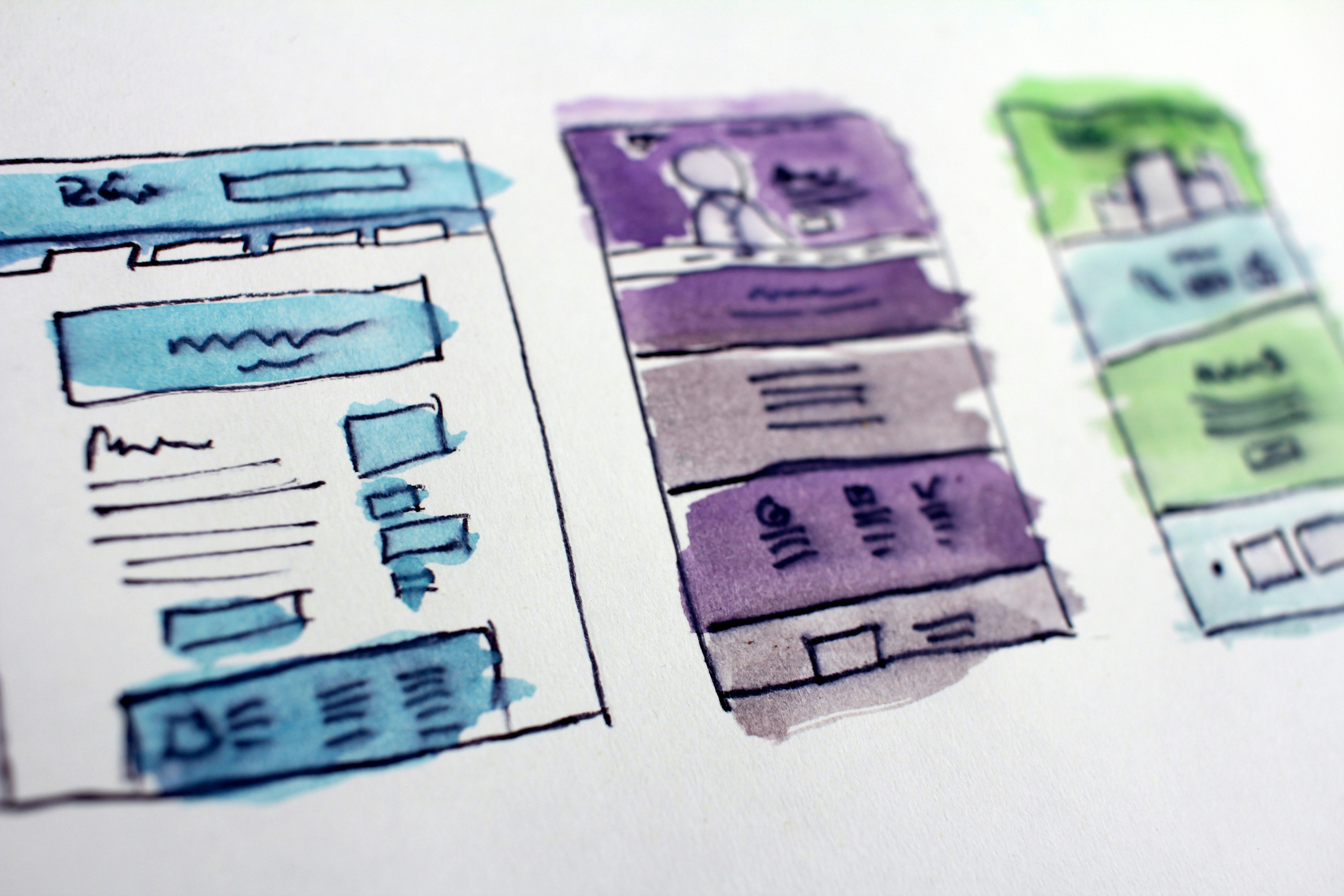You’ve developed an incredible app that you believe can change the game in its industry. But how do you ensure that your app reaches the right audience and becomes successful? In this article, we will explore some proven app marketing strategies that can help you effectively promote your app and reach your target users. From optimizing your app store listing to leveraging social media and influencers, we will provide you with actionable tips and insights to boost your app’s visibility and drive downloads. So, if you’re ready to take your app marketing to the next level, let’s dive in!
This image is property of images.unsplash.com.
App Store Optimization (ASO)
When it comes to promoting your app, one of the key factors to consider is App Store Optimization (ASO). ASO is all about optimizing your app’s visibility and discoverability in the app stores. There are several important aspects to focus on when it comes to ASO, starting with keyword research.
Keyword research
Effective keyword research is crucial for ASO. By understanding the keywords that your target audience is using to search for apps like yours, you can optimize your app’s visibility in the app store search results. This involves conducting thorough research to identify the most relevant and popular keywords, and then strategically incorporating them into various elements of your app, such as the app title, description, and even the app icon design.
App title optimization
The app title is one of the first things that users see when they come across your app in the app store. It should not only be catchy and memorable but also include relevant keywords. By including keywords in your app title, you increase the chances of your app appearing in search results for those specific keywords. However, it’s important to find a balance between including keywords and keeping the title concise and easy to read.
Keyword-rich description
The app description is another important element for ASO. Use this space to provide an engaging and informative description of your app, while also strategically incorporating relevant keywords. Be sure to highlight the unique features and benefits of your app, and make it clear why users should download and use it.
App icon design
The app icon is like a visual representation of your app, and it plays a significant role in attracting users’ attention. A well-designed app icon can make a lasting impression and entice users to click and explore further. It’s important to create an app icon that accurately represents your app’s purpose, is visually appealing, and stands out among the competition.
Screenshots and videos
Another effective way to showcase your app and convince users to download it is through screenshots and videos. Use high-quality screenshots to visually demonstrate your app’s features and user interface. You can also create videos that provide a more dynamic and interactive preview of your app’s functionality. Be sure to make the screenshots and videos engaging and informative to grab the users’ attention and encourage them to learn more about your app.
Ratings and reviews
Positive ratings and reviews play a significant role in influencing users’ decisions to download an app. Encourage your users to leave ratings and reviews by providing a seamless and user-friendly experience within your app. Respond to user feedback and address any concerns or suggestions they may have. It’s also important to monitor and manage your app’s ratings and reviews regularly to ensure a positive overall impression of your app in the app stores.
Localization
Localization involves adapting your app to various international markets by translating the app’s content and tailoring it to specific cultures and preferences. By localizing your app, you can reach a broader audience and increase the chances of your app being discovered and downloaded. Take into account language, cultural nuances, and even regional preferences when localizing your app. This can include translating the app’s description, keywords, screenshots, and even incorporating localized currencies or units of measurement.
Social Media Marketing
In addition to App Store Optimization, leveraging social media marketing can greatly enhance your app marketing strategy. Social media platforms provide an excellent opportunity to engage with your target audience, spread awareness about your app, and build a strong online presence.
Create relevant social media profiles
To effectively utilize social media for app marketing, you need to establish a presence on relevant platforms. Identify which social media platforms are commonly used by your target audience and create engaging and visually appealing profiles for your app. This can include platforms like Facebook, Twitter, Instagram, LinkedIn, and even niche platforms that are popular within your app’s specific industry.
Engage with your target audience
Social media is all about building relationships and engaging with your audience. Regularly post content that is relevant and interesting to your target audience, such as updates about your app, app-related news, tips and tricks, or industry insights. Encourage users to comment, ask questions, and share their experiences with your app. Respond promptly and authentically to user engagement to foster a sense of community and trust.
Create shareable content
To increase the visibility and reach of your app, create shareable content that resonates with your audience. This can include informative blog posts, engaging videos, visually appealing infographics, or interactive quizzes or polls. Craft content that is valuable, entertaining, or educational, and has the potential to go viral. Encourage users to share your content with their networks, which can lead to increased app downloads and brand recognition.
Run social media contests
Contests are a fun and effective way to generate buzz around your app and increase user engagement. Consider running social media contests that require participants to perform specific actions, such as liking, sharing, or commenting on a post related to your app. Offer enticing prizes or exclusive app-related rewards to incentivize participation. Contests not only increase brand visibility but also attract new users who may not have been aware of your app before.
Influencer marketing
Influencer marketing is a powerful strategy to tap into the existing follower base of influential individuals on social media. Identify relevant influencers within your app’s industry or niche who have a substantial following. Collaborate with these influencers to promote your app by creating sponsored content or running joint campaigns. By leveraging the trust and credibility that influencers have built with their followers, you can significantly boost your app’s visibility and credibility.
Paid social media advertising
To further amplify your app marketing efforts on social media, consider investing in paid advertising. Most social media platforms offer various advertising options that allow you to target specific demographics, interests, or behaviors. Through paid advertising, you can reach a wider audience, increase app downloads, and drive user engagement. Monitor the performance of your ads regularly and optimize them based on the insights gained to achieve the best possible results.
This image is property of images.unsplash.com.
Content Marketing
Content marketing is an essential aspect of any successful app marketing strategy. By creating valuable and engaging content related to your app, you can attract and retain users, demonstrate your app’s value, and establish yourself as an authority in your app’s industry.
Create a compelling blog
Developing a blog that focuses on topics related to your app’s industry or niche can be a powerful tool for app marketing. By consistently publishing high-quality blog posts, you can provide valuable information to your target audience and establish your app as a reliable source of expertise. Ensure that your blog posts are engaging, informative, and relevant to your users’ interests and pain points.
Publish valuable app-related content
In addition to a blog, consider creating and sharing app-specific content that showcases the unique features and benefits of your app. This can include tutorials, how-to guides, case studies, success stories, or other forms of informative and actionable content. By providing valuable app-related content, you not only educate and engage your audience but also build trust and credibility.
Guest blogging
Expand your reach and increase your app’s visibility by guest blogging on relevant platforms. Identify reputable blogs or websites within your app’s industry and offer to write informative and valuable guest posts for their audience. This not only allows you to tap into an existing community of potential users but also increases your app’s authority and credibility in the industry.
Create informative videos
Videos are a highly engaging and shareable form of content. Consider creating app-related videos that highlight your app’s features, provide tutorials, or showcase user testimonials. Host these videos on platforms such as YouTube or Vimeo, and share them across your social media channels and website. Visual content like videos can greatly enhance your app marketing efforts and drive user engagement.
Email newsletters
Email newsletters are an effective way to nurture and maintain a relationship with your app users. Collect email addresses from app users and regularly send them newsletters that provide updates about your app, industry news, exclusive offers, or valuable content. Personalize the newsletters and ensure they are mobile-friendly for the best user experience.
Whitepapers and eBooks
If your app caters to a niche audience or offers specialized features, consider creating whitepapers or eBooks that delve deep into specific topics or provide in-depth information. These resources can act as lead magnets, attracting potential users and showcasing the value and expertise of your app. Offer them as downloadable assets on your website or through social media campaigns, and use them to capture user information for future marketing efforts.
Influencer Marketing
Influencer marketing can be a highly effective strategy to promote your app and leverage the influence and credibility of relevant individuals in your app’s industry.
Identify relevant influencers
Start by identifying influencers who have a strong following and are relevant to your app’s niche or industry. Look for individuals who have a track record of producing high-quality content and engaging with their audience. Consider factors such as reach, engagement rates, and alignment with your app’s brand values.
Build relationships with influencers
Once you’ve identified relevant influencers, it’s important to build meaningful relationships with them. Engage with their content by liking, commenting, and sharing it. Establish a rapport by actively participating in discussions or demonstrating your knowledge and passion for the industry. Building genuine relationships with influencers is key to developing successful partnerships in the future.
Encourage influencer reviews or recommendations
Consider reaching out to influencers and offering them the opportunity to review your app or recommend it to their followers. Provide them with a compelling reason to try your app and highlight the unique features or benefits it offers. Influencer reviews and recommendations can generate buzz around your app and attract new users.
Sponsor influencer content
Another way to collaborate with influencers is by sponsoring their content. Offer to support their creative endeavors by providing resources, exclusive access to features, or even financial compensation. In return, the influencer can create content that showcases your app and promotes it to their audience. Sponsorship can significantly increase your app’s visibility and credibility.
Offer exclusive discounts or giveaways
To further incentivize influencers to promote your app, consider offering exclusive discounts, giveaways, or other exclusive perks. This not only encourages influencers to engage with your app but also creates a sense of urgency and exclusivity for their followers. Exclusive offers can attract new users and drive app downloads.
This image is property of images.unsplash.com.
App Store Advertising
App store advertising allows you to reach your target audience directly within the app stores. It can be a highly effective strategy to increase app visibility and drive downloads.
Google Ads
Google Ads is a powerful advertising platform that allows you to promote your app through search engine advertisements. With Google Ads, you can target specific keywords and demographics to ensure your app appears in relevant search results. This can significantly increase your app’s visibility and reach a highly relevant audience.
Apple Search Ads
Apple Search Ads is a platform specifically designed for app advertising on the Apple App Store. It allows you to promote your app directly within the app store search results. By bidding on relevant keywords and demographics, you can increase the chances of your app being discovered by users searching for apps like yours.
Display ads
Display ads are graphical advertisements that appear within apps or on websites. Using display ads, you can reach a wider audience and increase brand visibility. These ads can be static images or interactive banners that catch the attention of users and encourage them to click and explore your app further.
Video ads
Video ads are a highly engaging form of advertising that allow you to showcase your app’s features and benefits. These ads can be displayed within other apps or on websites and can be either short videos or full-length commercials. Video ads are a great way to capture users’ attention and provide them with a dynamic preview of your app.
App Install ads
App Install ads are specifically designed to encourage users to download your app. These ads typically appear within popular apps or websites and include a call-to-action that prompts users to install your app directly from the ad. App Install ads can increase app downloads and help you reach a wider audience.
Retargeting ads
Retargeting ads allow you to reach users who have shown previous interest in your app. By using tracking pixels or cookies, you can identify users who have visited your app’s website or engaged with your app’s content. Retargeting ads then display your app to these users across various websites and apps. This can be an effective way to re-engage users who may have had an initial interest in your app but didn’t convert.
In-app advertising
In-app advertising involves displaying ads within other apps. By partnering with app developers or advertising networks, you can place ads for your app within popular apps that are frequented by your target audience. In-app ads can help increase brand visibility and drive targeted traffic to your app.
App Review Websites
App review websites are platforms where users and experts review and rate different apps. Getting your app reviewed on these websites can significantly increase its visibility and credibility.
Submit your app to popular review websites
Identify popular app review websites that are relevant to your app’s industry or niche. Research their submission guidelines and requirements and submit your app for review. A positive review from a reputable website can attract new users and generate buzz around your app.
Pitch your app to influential reviewers
In addition to submitting your app for review, consider reaching out to influential reviewers directly. Craft personalized pitches that highlight the unique features and benefits of your app and explain why it would be valuable for their audience. Building relationships with influential reviewers can lead to more in-depth and comprehensive reviews that resonate with their large audience.
Offer promo codes for app downloads
To incentivize users to download and try your app, offer promo codes to app review websites. These codes allow users to download your app for free or at a discounted rate. Encourage the websites to distribute these codes to their audience, which not only drives app downloads but also provides an opportunity for users to review and rate your app.
Respond to reviews and engage with users
Once your app is reviewed and rated, be sure to monitor and respond to user reviews. Address any concerns or issues that users may have in a prompt and friendly manner. Engaging with users through app review websites shows that you value their feedback and are committed to improving their experience with your app.
This image is property of images.unsplash.com.
App Store Ratings and Reviews
App store ratings and reviews have a significant impact on app discovery and user perception. Implementing strategies to encourage positive ratings and reviews can greatly benefit your app’s success.
Encourage users to leave ratings and reviews
Within your app, provide clear and simple prompts that encourage users to leave ratings and reviews. Consider using in-app messages or notifications at appropriate times, such as after the user has completed a specific action or successfully completed a level within a game. Make the process of leaving a review as seamless and user-friendly as possible.
Prompt users for reviews at the right time
Timing is crucial when prompting users for reviews. Avoid interrupting the user’s experience with constant review prompts. Instead, choose moments where users have had a positive interaction with your app, such as after they have achieved a milestone or accomplished a significant task. Prompting users for reviews at the right time increases the chances of receiving positive feedback.
Respond to user feedback and reviews
Take the time to respond to user feedback and reviews, whether they are positive or negative. Addressing user concerns and thanking them for their positive feedback shows that you care about their experience with your app. Responding to reviews also provides an opportunity to address any issues or bugs that may have been mentioned, which can lead to improved user satisfaction.
Implement in-app feedback mechanisms
To further encourage user feedback and engagement, implement in-app feedback mechanisms. This can include features such as a feedback form, a customer support chat, or a user forum where users can ask questions and provide suggestions. By actively seeking and listening to user feedback, you can continuously improve your app and increase user satisfaction.
App Referral Programs
Implementing a referral program within your app can be a powerful way to encourage your existing users to share your app with their friends and networks.
Implement a referral system within your app
Create a referral system that offers incentives for users who refer their friends to download and use your app. This can be in the form of exclusive app-related rewards, in-app currency, or even discounts and offers. Make it easy for users to refer their friends by providing them with personalized referral codes or links that they can share.
Reward users for referring others
Make sure to reward both the users who refer others and the new users who have been referred. By offering incentives to both parties, you create a win-win situation that encourages more users to participate in your referral program. Consider offering higher rewards for users who refer multiple friends or who consistently bring in new users over time.
Offer incentives for both referrers and new users
The incentives you offer for referring others should be enticing enough to motivate users to participate. This can include things like additional app features, exclusive content, or even physical rewards such as merchandise or gift cards. Similarly, new users who have been referred should receive a welcome reward or some form of exclusive content to encourage them to engage with your app.
This image is property of images.unsplash.com.
Search Engine Optimization (SEO)
Search Engine Optimization (SEO) is not only important for websites but can also have a significant impact on the visibility and discoverability of your app’s website.
Optimize your app website for search engines
When developing your app’s website, make sure to optimize it for search engines. This involves ensuring that your website is well-structured, mobile-friendly, and loads quickly. Incorporate relevant keywords throughout your website’s content, including the page titles, meta descriptions, headings, and image alt tags.
Keyword research for SEO
Similar to ASO, conducting thorough keyword research is crucial for SEO. Identify the keywords that your target audience is using to search for apps similar to yours, and strategically incorporate them into your website’s content. This will increase the chances of your website appearing in search engine results when users search for those specific keywords.
Create high-quality backlinks
Building high-quality backlinks to your app’s website can greatly improve its SEO. Look for reputable websites within your app’s industry or niche that may be interested in linking to your content. This can be achieved through guest blogging, partnerships, or simply reaching out to website owners and asking them to link to your website. High-quality backlinks from authoritative websites can improve your website’s search engine rankings.
Regularly update content for freshness
Search engines prioritize websites that regularly update their content. Create a content strategy that involves regularly publishing fresh and valuable content on your app’s website. This could be in the form of blog posts, news articles, or even updates about your app’s features. By regularly updating your website, you signal to search engines that your content is current and relevant to users’ search queries.
Use relevant meta tags
Meta tags provide search engines with information about your app’s website. Make sure to include relevant meta titles and meta descriptions that accurately describe the content of each page. Use keywords strategically in these meta tags to improve your website’s visibility in search engine results pages.
App Store Feature Requests
Engaging with your app’s users and encouraging feature requests can help you continuously improve your app and meet the needs of your target audience.
Engage with users and seek feedback
Regularly engage with your app’s users through various channels, such as social media, email, or in-app messaging. Encourage them to provide feedback, ask questions, or suggest improvements. By actively seeking user feedback, you gain valuable insights into how your app is performing and what features or improvements your users would like to see.
Implement requested features and improvements
When users make feature requests or suggestions, carefully consider their feedback and prioritize the most relevant and beneficial ideas. Implementing requested features and improvements not only shows your users that you value their input but also enhances their overall app experience. Regularly update your app with new features to keep users engaged and loyal.
Offer incentives for feature requests
To further incentivize users to provide feature requests, consider offering rewards or exclusive benefits for their input. This could include things like in-app currency, premium access, or even the opportunity to beta test upcoming features. By offering incentives, you encourage more users to actively participate in improving your app.
Promote new features and updates
When you implement new features or make significant updates to your app, make sure to promote them effectively. Notify your users through in-app messages, push notifications, or email newsletters. Highlight the benefits and improvements of the new features to entice users to try them out. Effectively promoting new features and updates can increase user engagement and encourage users to recommend your app to others.
In conclusion, a comprehensive app marketing strategy involves a combination of App Store Optimization (ASO), social media marketing, content marketing, influencer marketing, app store advertising, engagement with app review websites, app store ratings and reviews management, app referral programs, search engine optimization (SEO), and listening to user feedback for feature requests. By implementing these strategies effectively, you can increase your app’s visibility, attract more users, and ultimately achieve your app marketing goals.





